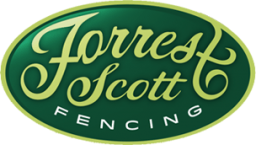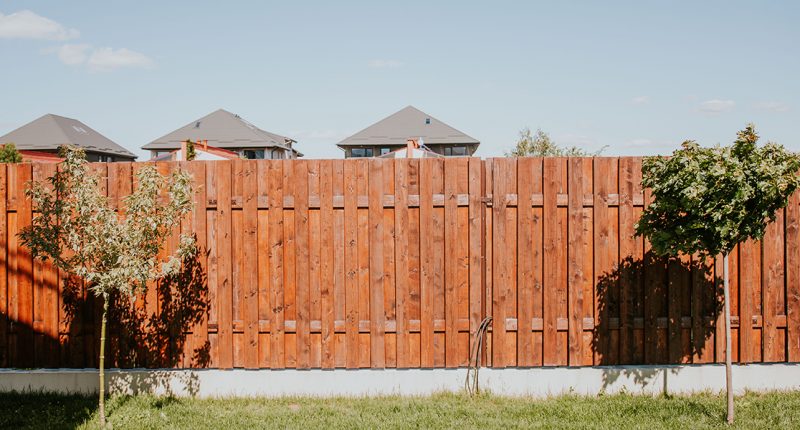Homeowners in Louisiana have multiple types of fencing materials to consider. A fencer professional can help you choose the material that works best for your residence while adhering to all local ordinances.
The Forrest Scott Fencing team can answer your questions about fencing styles and help you set up an installation appointment. Find out more about fence services in Watson by Forrest Scott Fencing by calling 225-230-1798.
Wood
Wood represents a traditional choice for fencing material. Generally, wood fences work on any property and yard style. In many cases, it’s cheaper than options like masonry or vinyl. However, the prices vary based on the kind of wood you select.
You may choose between options like:
- Cedar
- Redwood
- Teak
- Bamboo
Some homeowners choose pressure-treated wood, which tends to last longer in the elements while offering you resistance to the effects of bugs or rot. Generally, wood fencing lasts for a few decades, depending upon how well you care for it.
You may have to spend time on special considerations if you choose wood as a material. For example, many homeowners take special steps for protecting wooden fence during the winter. Consider your wood fence options in more detail now:
Cedar
Cedar lasts a long time, and many people treat it as the pinnacle of wood fencing options. It has a lovely red color, a tight grain, and relatively few knots. In addition, the wood has a natural resistance to insects and decay but may still rot over time.
You may preserve cedar fencing’s original color by applying a sealant. If you do not seal the wood, it may age to a silvery gray color over time.
Redwood
Redwood fences are often expensive. However, they bring a beautiful luster to your property. Many people only use this kind of wood sparingly. For example, you may want to use it around a pool or a spa.
Redwood resists decay and shrinking. The wood can even withstand exposure to the elements without shrinking. Generally, the wood lasts longer if you apply oil or a sealer once or twice a year.
Teak
Teak comes with many of the same benefits as redwood and often costs substantial materials. However, it resists insects and provides a stunning look for your residence. Consider these options when deciding on your fencing needs.
Vinyl
You may also select vinyl fencing materials. This material usually costs more than wood, but it offers more flexibility and strength. It’s easy to clean among types of fencing materials and generally requires very little maintenance.
A vinyl fence may last up to 30 years. Before you install any fence, make sure that you review regional regulations for construction. Vinyl fencing generally works well for any residence.
Metal
You have many options when it comes to metal fencing. More than other fencing materials, metal varies in how it works with your resident. Aluminum fencing, for example, may not fit in some neighborhoods, though they are inexpensive.
Other forms of metal fencing – like cast-iron fencing – generally give a very polished feel to a home. However, these rail fences are more expensive and may require extra maintenance if they begin to rust.
Finally, you may choose chain link fencing strung between fence posts. This style generally works well if you have a casual residence. Professionals can help you review the maintenance needs of any metal fence.
Masonry
Bricks – or masonry – stand as often overlooked types of fencing materials. Masonry fences may include options made of:
- Brick
- Stucco
- Concrete
- Stone
- Block
They often last a very long time, with some masonry fences enduring for more than a century. They give your property a stately and classic appearance. However, they do often come with high up-front installation costs.
Additionally, masonry fences are not maintenance-free. Eventually, you may need to bring in a professional to fix mortar joints or perform other minor repairs.
PVC
PVC provides one of the lowest cost options for fencing material in Louisiana. You may use this material for the pickets and sleeves, reducing the amount of wood that goes into the construction of the fence.
You may consider the material for a farm fence or fencing for another relaxed environment.
Composite
Plastic and wood are blended to create composite materials. They often look like wood but have more durability from the plastic they contain. Composite fences resist rotting and warping, even when exposed to the elements.
The appearance of composite fencing can vary greatly depending upon the style you choose. You can usually find a style that works for any residence. Note that composite fencing often costs more than plain wooden options.
You can keep composite fencing in good condition by regularly spraying it down with water. Generally, only professionals should handle the installation of composite fencing.
Barbed Wire
Are you looking for a fencing option that’s purely practical with a minimal visible appeal? In this situation, a barbed-wire may work for you. Generally, farmers or ranchers use this style of fencing, and you aren’t likely to find it in town.
Most communities do not allow you to use barbed wire, restricting it to usage in rural environments. You do have to re-stretch the wiring over time, as it can sag after standing for some time. Consider these factors before making your decision.
Speak to the Professionals About Fencing Materials
Do you want to learn more about types of fencing materials? You can get professional help from fence installation experts in Baton Rouge when contacting Forrest Scott Fencing. Get in contact with a team member today by calling 225-230-1798.




